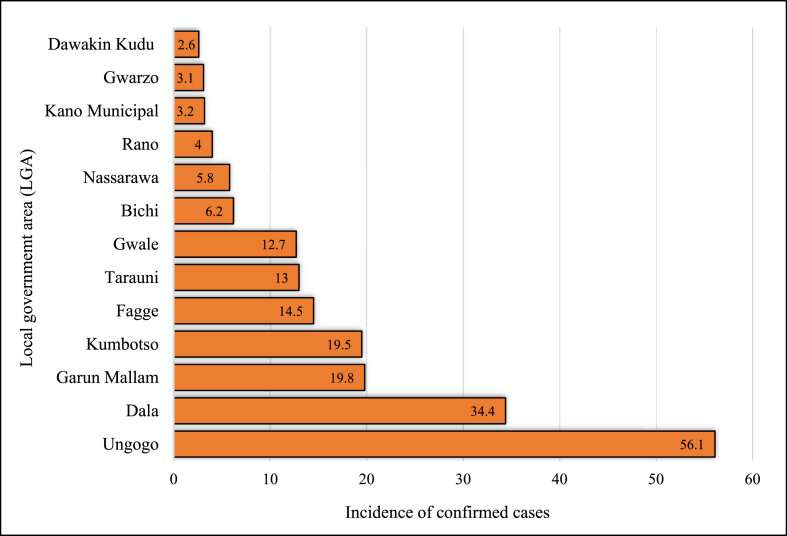This article has been reviewed according to Science X's editorial process and policies. Editors have highlighted the following attributes while ensuring the content's credibility:
fact-checked
proofread
Vaccine gap 'fueling Nigeria's diphtheria outbreak'

Low vaccine coverage and weak infrastructure have fueled a recurrence of diphtheria in Nigeria, especially in rural areas beset by poor access to healthcare services, public health experts say.
The highly contagious bacterial infection which affects a person's nose, throat and skin is potentially fatal. But it can be prevented in children with a pentavalent (five-in-one) vaccine.
As of 15 March, 21 states had reported a total of 1,064 suspected cases—79 percent of them in Kano—according to a situational report from the Nigeria Centre for Disease Control and Prevention (NCDC). Of those, around a third (389) have been confirmed.
The majority (78 percent) of confirmed cases are children aged two to 14 years and 62 of them have died from the disease.
The NCDC officially declared an outbreak of diphtheria on 20 January after it was notified of suspected cases of the disease in Kano and Lagos states on 1 December 2022.
But experts say that Nigeria's routine immunization coverage has been poor and fluctuated significantly over the last decade.
"The persistence of diphtheria in Nigeria has been linked to various factors, including low vaccine coverage, insufficient vaccine storage and transportation," say researchers in an article on potential solutions published in the March issue of New Microbes and New Infections.
"Low accessibility to healthcare facilities, especially in rural regions, exacerbates the issue, resulting in delayed diagnosis and treatment."
Ritik Agrawal, lead author of the article and a public health consultant at the Regional Medical Research Centre in Odisha, India, tells us that inadequate disease surveillance and response systems, marked by a lack of resources, personnel, and cooperation between government agencies, impedes the effective detection and response to diphtheria outbreaks.
Agrawal says that the Nigerian government must step up efforts to prevent future outbreaks of diphtheria following the recurrence.
Nigeria had recorded diphtheria outbreaks in the past, most significantly from February to November 2011 in rural areas of Borno, northeast, Nigeria.
Bassey Okposen, the director of disease control and immunization at Nigeria's National Primary Health Care Development Agency (NPHCDA), says that immunization is being stepped up in the country.
"We have supplied additional pentavalent vaccines to all the 36 states and Federal Capital Territory for vaccination of children less than four years and additional 500,000 doses of tetanus and diphtheria vaccines to Kano state for the vaccination of age group four to 14 years and the health care workers," he explains.
Salma Ali Suwaid, head of the emergency pediatric unit at the Murtala Mohammed Specialist Hospital in Kano, said at a webinar organized by the NCDC early this month (6 March) that in Kano, north west of Nigeria, only 20 percent of children aged four to 14 years were fully vaccinated with tetanus and diphtheria vaccines. She said ten percent were partly vaccinated and 54 percent not vaccinated.
She said the gap in coverage was resulting in more cases and deaths in the state.
Suwaid cited the case of an unvaccinated eight-year-old boy, who was diagnosed with hemorrhagic diphtheria and died within one hour of admission.
Public health experts are calling for more action to help prevent future outbreaks.
"The first step is to increase awareness about the disease and the vaccine among the community, healthcare workers and policymakers, which can help in early detection, prevention and control and increase vaccination coverage," Agrawal explains.
"Additionally, improving access to healthcare services, particularly in remote and underserved areas, can help in early detection and prompt treatment of diphtheria cases, which can prevent further transmission."
More information: Ritik Agrawal et al, "Nigeria on alert: Diphtheria outbreaks require urgent action"—A critical look at the current situation and potential solutions, New Microbes and New Infections (2023). DOI: 10.1016/j.nmni.2023.101100

















